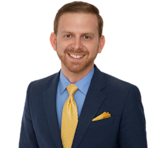The U.S. Food and Drug Administration on Saturday granted emergency use authorization for a saliva test developed by the Yale School of Public Health to detect the coronavirus, the agency said in a statement.
The test was used on a trial basis by National Basketball Association players and staff, The New York Times reported.
SalivaDirect, a saliva-based laboratory diagnostic test, is the fifth saliva test approved by the FDA for COVID-19, the FDA said in its statement. The test does not require a swab or collection device and uses saliva from people suspected of having the coronavirus, the agency said. It can produce up to 90 results in less than three hours in a laboratory, The Wall Street Journal reported.
The FDA said the test could also lower the risk to health-care workers from collecting samples since it is self-collected under the observation of professionals.
BREAKING: a saliva #COVID19
— Yale School of Public Health (@YaleSPH) August 15, 2020
test developed by @yalesph researchers has recieved emergency use authorization by the FDA. #SalivaDirect is fast, inexpensive, and non-invasive. It can be a game changer for accessible testing. https://t.co/clk3mIciG1
“SalivaDirect is simpler, less expensive, and less invasive than the traditional method for such testing, known as nasopharyngeal swabbing,” the Yale School of Public Health said in a release. “Results so far have found that SalivaDirect is highly sensitive and yields similar outcomes as NP swabbing.”
“We simplified the test so that it only costs a couple of dollars for reagents, and we expect that labs will only charge about $10 per sample,” Nathan Grubaugh, assistant professor at Yale School of Public Health, said in the release.
The leading coronavirus saliva test, developed at Rutgers University and given permission by the FDA in mid-April, costs individual consumers up to $150, ESPN reported. That cost could be reduced to as little as $60, according to Andrew Brooks, an associate professor at Rutgers and chief operating officer of the lab behind the test. The Rutgers test can be taken at home and returns results in 24 to 48 hours, ESPN reported.
The NBA began using the test after partnering with Yale in June, the Times reported. The test was used in a program involving asymptomatic players, coaches and staff from various teams.
The FDA just authorized a saliva test for COVID-19 created by Yale and funded by the NBA and @TheNBPA. How that partnership came to be, and how the test works https://t.co/Vb5jIHU0uI
— Zach Lowe (@ZachLowe_NBA) August 15, 2020
“Providing this type of flexibility for processing saliva samples to test for COVID-19 infection is groundbreaking in terms of efficiency and avoiding shortages of crucial test components like reagents,” Stephen M. Hahn, commissioner of the FDA, said in a statement. “Today’s authorization is another example of the FDA working with test developers to bring the most innovative technology to market in an effort to ensure access to testing for all people in America.”
According to the FDA, Yale intends to provide SalivaDirect as an “open source” protocol. The test does not rely on any proprietary equipment from Yale, and laboratories can select from a variety of commercially available testing components.
The Jackson Laboratory for Genomic Medicine in Farmington, Connecticut, will team with Yale to find ways to administer the test for a broader audience, the school said.
“The SalivaDirect test for rapid detection of SARS-CoV-2 is yet another testing innovation game-changer that will reduce the demand for scarce testing resources,” Brett Giroir, assistant secretary for health and COVID-19 testing coordinator said in the FDA release. “Our current national expansion of COVID-19 testing is only possible because of FDA’s technical expertise and reduction of regulatory barriers, coupled with the private sector’s ability to innovate and their high motivation to answer complex challenges posed by this pandemic.”
Yale’s test is one of several team efforts that have created enthusiasm for the concept that spitting in a tube is as effective as being subjected to a nasal swab.
“This could be a very helpful tool in getting people back to work and back at school,” Isaac Bogoch, a University of Toronto infectious diseases specialist, told The Wall Street Journal. “You don’t have to have a giant swab shoved to the back of your nose or to the back of your throat, so getting a sample is way easier and way more convenient. That cannot be overstated.”
Cox Media Group







